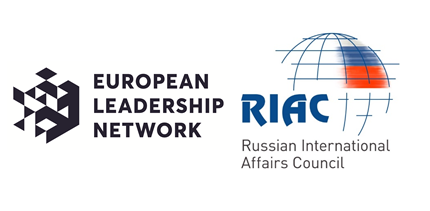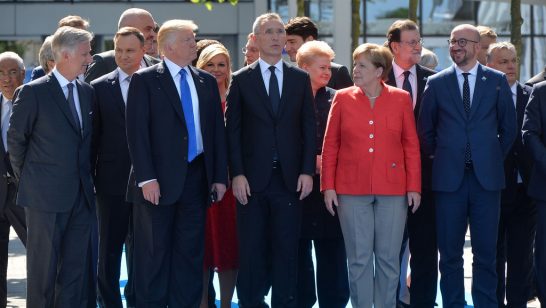
It was no surprise the issue of Russia played a crucial part in the NATO 2018 Summit in Brussels. Since 2014, the organisation has returned to its original raison d’être with Russia as NATO’s archenemy.
The 2018 Summit Declaration references the Russian State in excess of 50 times; by contrast, terrorism was mentioned only 28 times.[1] The Declaration seeks to demonise Russia by mentioning almost all international sins possible, including suggestions of Russian ‘deployment of modern dual-capable missiles in Kaliningrad’ and of ‘significant investments in the modernization of its strategic forces’. It aims to present the Alliance as a unified force resolute in its commitments, and Russia as an existential threat to its security and longevity. The reality, however, is far more complicated.
There are serious differences inside of NATO.
In a recent interview with Defense News, Minister of Defence of Portugal, José Alberto de Azeredo Lopes, expressed the concern that the organisation had become too focussed on Russia, and distracted by the two percent funding issue.[2] President Trump’s remarks to Secretary General Stoltenberg echo such tensions by criticising Germany for its gas deal with Russia, and challenging the commitment of European allies for not increasing spending on defence.[3]
If one is to believe a number of publications in the Russian and Western media, a war between Russia and NATO is highly probable; good news: it is not. The military standoff witnessed at the height of the Cold War and the current situation cannot, and ought not, be compared.
The current problem in Russia-NATO relations is that neither Moscow nor Brussels appear to be striving for reconciliation. The Brussels Summit Declaration evidences this: its language is uncompromising. Statements met with suspicion and challenged in Moscow include those suggesting:
- ‘NATO does not seek confrontation and poses no threat to Russia’;
- ‘The United States is in compliance with its obligations under the INF Treaty and continues to provide substantial transparency on its programs while pursuing a diplomatic dialogue with Russia’;
- ‘NATO BMD is not directed against Russia and will not undermine Russia’s strategic deterrence’.
Moreover, the Declaration draws upon unproven charges regarding Russian state involvement in the Salisbury incident and the downing of flight MH-17. While the document stops short of demanding an unconditional surrender from Russia to NATO, it comes close.
It is hard to imagine that Moscow will voluntarily accept demands to ‘withdraw the forces it has stationed [in Ukraine, Georgia, and the Republic of Moldova]; ‘reverse its recognition of the Abkhazia and South Ossetia regions of Georgia as independent states’; or to ‘accept its responsibility [with regard to the MH-17 downing]’. Such actions often requested following the defeat of one side in conflict.
There is currently no sign that NATO really wishes to go to war with Russia, particularly over Ukraine or Georgia. Yet it appears that NATO has no appetite for reconciliation with Russia either.
The organisation rightfully stresses that since 2016 it has held several Ambassadorial-level meetings of the NATO-Russia Council aimed at assisting communication between the sides. However, the Brussels Summit Declaration explicitly states that NATO ‘cannot and will not compromise on the principles on which our Alliance and security in Europe and North America rest.’ Further adding that ‘there can be no return to “business as usual”’ unless Russia is to fulfil NATO’s demands.
The very fact that NATO continues to exist despite the collapse of the Soviet Union and the Warsaw Pact is a constant cause of irritation for Moscow. Moreover, its enlargement – a further 13 countries added following the end of the Cold War – is seen as a threat to Russia and its interests. The development of closer cooperation between NATO and non-member states such as Sweden, Finland, Ukraine, and Georgia worries the Kremlin.[4] The potential membership for Ukraine and Georgia in NATO are red lines with a potential to prove to be casus belli, as both Vladimir Putin and Dmitry Medvedev repeatedly warn against their admission.[5] Yet NATO continues with its ‘open door’ policy.
Russia and NATO should also attempt to dispel opponent’s worries about high-scale military exercises, such as the Russian Zapad or NATO’s Trident Juncture. It is also necessary to replace the largely defunct Treaty on Conventional Armed Forces in Europe (CFE) with a new, more workable, treaty. Whilst German Minister of Foreign Affairs, Frank-Walter Steinmeier’s initiative on arms control was a step in the right direction, any negotiation of a new treaty in the near future appears unlikely. Another issue – improving air safety and resolving misunderstandings on the use of transponders over and beyond the Baltic Sea will also need addressing.
However, Russia and NATO are likely to find consensus on issues such as the improvement of confidence and security building measures; and the may include the development of prevention mechanisms for incidents on and over the sea.
The real issue at hand is not a high probability of war between Russia and NATO, but the low probability of disagreements being resolved by dealing with NATO as a whole. Serious differences inside the American political and military establishment have slowed and hindered negotiations with Russia. Yet even with these challenges, direct Russian-US dialogue appears to be more promising than the current status quo with NATO; this is why Moscow is paying more attention to bilateral negotiations with NATO members, primarily the United States, but also Germany and France, than to the organisation itself.
However, it is too early for Russia to give up on negotiations with NATO and the ‘collective West’. It is worth considering Moscow formulating its own official list of grudges, claims and demands – similar to those set out in the Brussels Summit Declaration – in order to compare views, seek common ground, and understand where the red lines really lay. This would allow both sides to discuss disagreements and identify areas of flexibility, as well as resolve tensions surrounding military incidents in both official and track II diplomatic relations. This kind of reconciliation between Russia and NATO is required to improve security and stability throughout Europe.
The opinions articulated above also do not necessarily reflect the position of the European Leadership Network or any of its members. The ELN’s aim is to encourage debates that will help develop Europe’s capacity to address pressing foreign, defence, and security challenges.
[1] https://www.nato.int/cps/en/natohq/official_texts_156624.htm
[2] https://www.defensenews.com/smr/nato-priorities/2018/06/25/portugals-defense-minister-targets-nato-defense-spending-goals/
[3] https://www.whitehouse.gov/briefings-statements/remarks-president-trump-nato-secretary-general-jens-stoltenberg-bilateral-breakfast/
[4] https://breakingdefense.com/2018/09/nato-russia-prep-biggest-war-games-since-cold-war/
[5] https://www.reuters.com/article/us-russia-nato-georgia/russian-pm-warns-nato-admission-of-georgia-could-trigger-terrible-conflict-idUSKBN1KR1UQ



